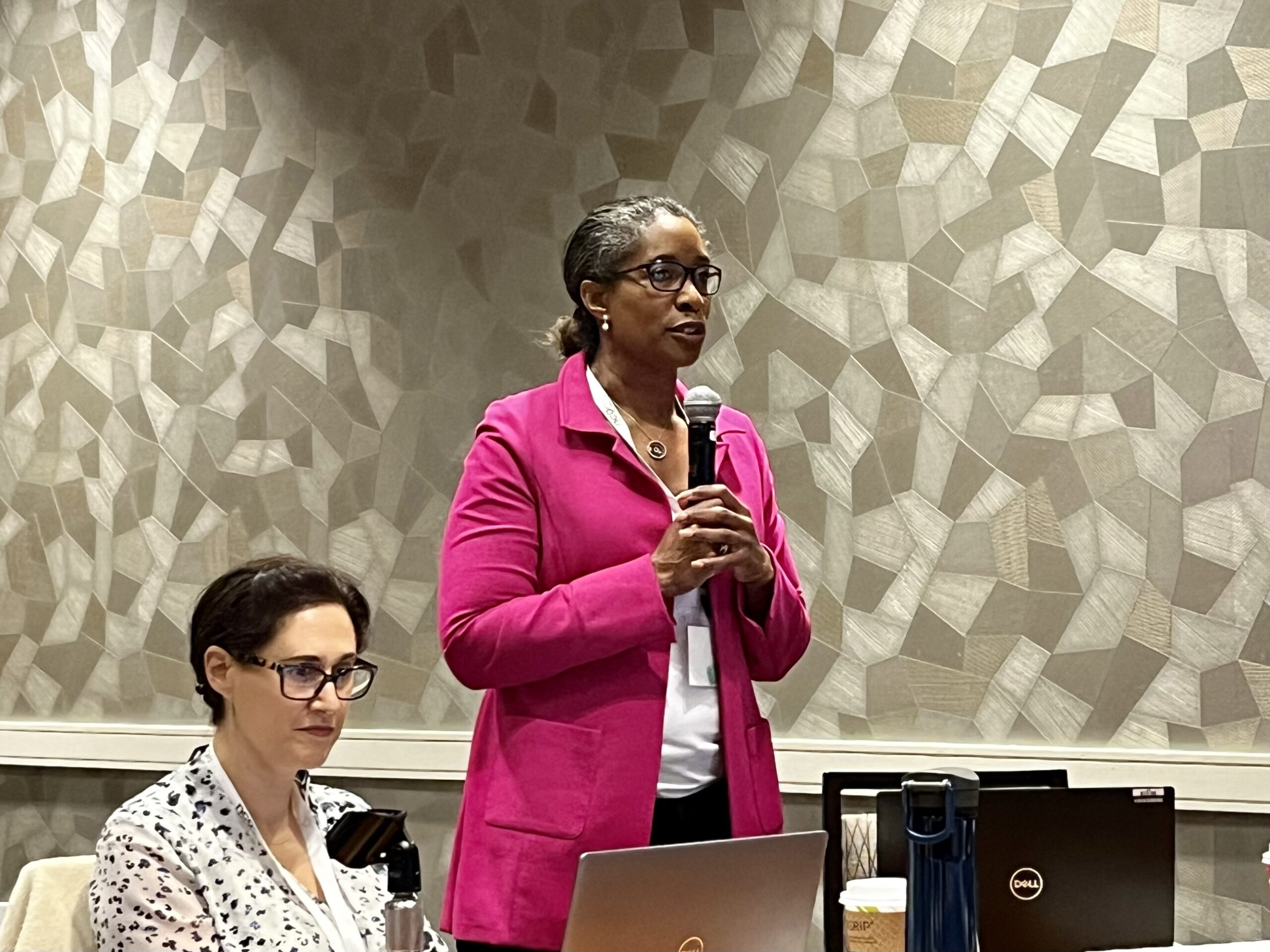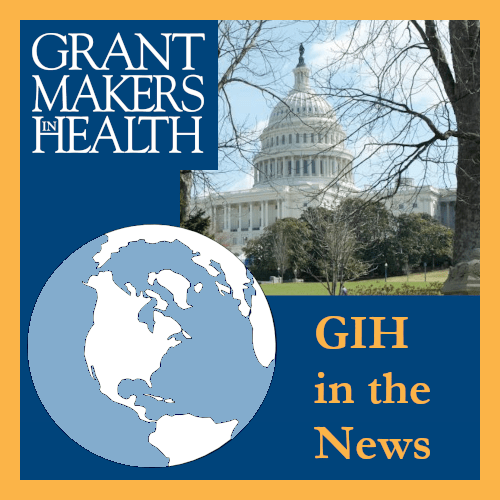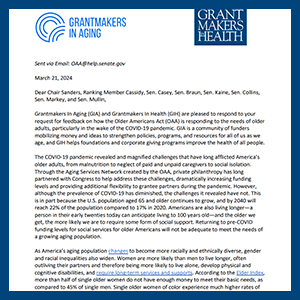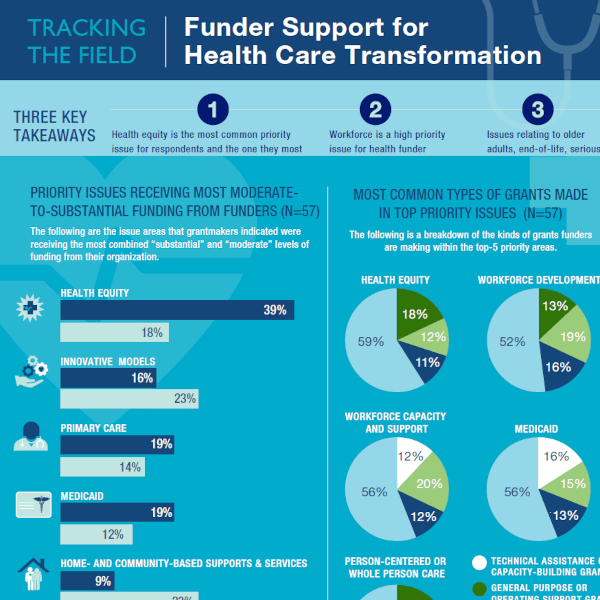Driving Change through Public-Private Collaboration at Age + Action 2024
On May 7, 2024, Grantmakers In Health (GIH) and Grantmakers In Aging (GIA) cohosted a funders-only meeting at the National Council on Aging’s Age + Action 2024 conference. The session, “Driving Change through Public-Private Collaboration,” focused on bridging connections between the public and private sectors to improve the health and well-being of older adults in…
Cara V. James and Lindsay Goldman in The Well News: The Older Americans Act Is Not Keeping Pace With Today’s Older Adults
Grantmakers In Health President and CEO Cara V. James and Grantmakers In Aging Chief Executive Officer Lindsay Goldman cowrote a commentary on the need to renew and modernize the Older Americans Act for The Well News, which was published on Monday, May 13, 2024: “We have known for years that the Older Americans Act and…
Grantmakers In Health and Grantmakers In Aging Release Policy Recommendations for Older Americans Act Renewal
On March 21, 2024, Grantmakers In Health (GIH) and Grantmakers In Aging (GIA) responded to a request for feedback about the reauthorization of the Older Americans Act (OAA) from the Senate Committee on Health, Education, Labor and Pensions (HELP).
Opportunities to Engage on the 2024 Reauthorization of the Older Americans Act
First signed into law in 1965, the Older Americans Act (OAA) provides critical services that address the social drivers of health for older adults such as nutrition, transportation, senior centers, elder rights protections, caregiver support, and health promotion. If the OAA is not reauthorized, it is set to expire on September 30, 2024. Grantmakers In…
GIA Member and GIH Funding Partner Meet Up: Older Americans Act Reauthorization
As part of this analysis, leaders from the field convened on January 18 for a meet-up to help shape new partnerships to support the OAA and advance older Americans’ health and social needs.
Grantmakers In Aging and Grantmakers In Health Announce Partnership to Support the 2024 Reauthorization of the Older Americans Act
Grantmakers In Aging (GIA) and Grantmakers In Health (GIH) are pleased to announce a new collaboration aimed at mobilizing funders in support of the 2024 reauthorization of the Older Americans Act (OAA).
The SCAN Foundation: September 2023
The SCAN Foundation published a report analyzing 2014-2020 Health and Retirement Study (HRS) data. The analysis found racial inequities in telehealth, access to care, and health status during the first year of the pandemic. In 2020, non-Hispanic Black and Hispanic adults over 50 experienced worse self-reported health status, used less telehealth, delayed care more, and were less likely to have their care preferences considered compared to their white counterparts.
Member Meet Up: The Next Wave in Creative Aging
Participants joined this informal networking session to talk with their peers about innovative, creative aging initiatives that can improve the well-being of older adults and their communities.
Health Philanthropy Impacting the Health and Well-Being of Family Caregivers
More than 53 million Americans—21 percent of the US population—are caregivers for loved ones who are older adults or adults living with chronic, disabling, or serious health conditions. Increasingly, the US health and long-term care systems rely on family caregivers. In 2017, family caregivers in the US provided a staggering 80 percent of long-term care, valued at $470 billion, and in 2021, 38 million family caregivers spent 36 billion hours caring for older adults, amounting to an estimated $600 billion in unpaid caregiving.
Funder Support for Health Care Transformation
This infographic summarizes the responses to a Grantmakers In Health funder poll, conducted October 2022, on how philanthropy is supporting health care transformation efforts, especially those concerned with improving quality of life, coordinating complex care, and taking patient preferences into account.






